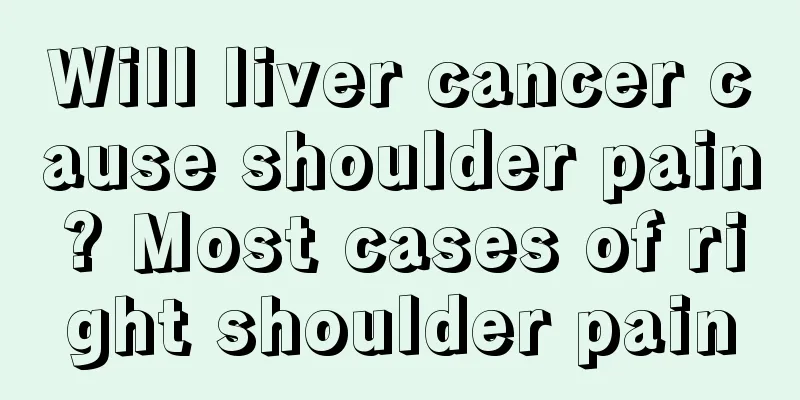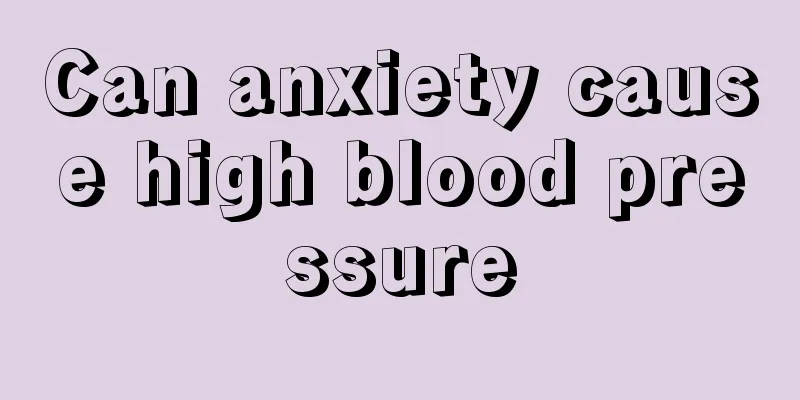What is the cause of anal pain after defecation

|
As many people pay more and more attention to their health, when their anus hurts after defecation, it attracts their attention. They want to fully understand the cause of anal pain after defecation? The following content introduces the causes in detail for many patients who have anal pain after defecation. In order to recover as soon as possible, you can have a comprehensive understanding. Anal pain after defecation is mostly caused by dry stool. The most common site of occurrence is behind or in front of the anus. Men, women, young and old can all suffer from this disease. Symptoms of anal fissure are pain and bleeding. The pain is very characteristic, with a sudden knife-like pain during defecation (caused by feces cutting the skin of the anal canal), followed by a brief relief, and then long-term anal pain (caused by spasm of the anal sphincter after stimulation). It is common in clinical practice that patients are afraid of defecation due to fear of pain, resulting in a vicious cycle of "fear of pain - holding back defecation - dry stool - more pain". The bleeding caused by anal fissures can be more or less depending on the degree of blood vessel tearing. It is common to see anemia due to long-term or heavy bleeding from anal fissures. If anal fissure is not accompanied by external hemorrhoids, anal canal stenosis, anal papilloma, etc., it can be cured through conservative treatment. If it is accompanied by these complications, surgery is required. There are many reasons for anal bleeding, including hemorrhoids, anal fissures, rectal polyps, enteritis, and even colorectal cancer. The specific diagnosis can only be confirmed through anorectal specialist examination. Anal fissure is one of the more painful anal diseases and can be accompanied by many anal discomforts, so you should pay attention to the following: (1) Maintain smooth bowel movements. After dry and hard feces are formed, do not struggle to defecate. You can choose warm saline enema or paraffin oil enema to smooth bowel movements. (ii) Treat anal crypt inflammation promptly to prevent infection and the formation of ulcers and subcutaneous fistulas. (3) Timely treatment of various diseases that cause anal fissures, such as ulcerative colitis, to prevent anal fissures from occurring. (IV) Drink less alcohol, avoid spicy food, avoid eating too refined food, combine coarse and fine grains, and consume as much fiber-rich food as possible, such as vegetables, to keep bowel movements normal. Early detection, early examination, and early treatment. What is the cause of anal pain after defecation? Through the introduction in this article, I believe that many patients who experience anal pain after defecation have fully understood the cause of this condition. After fully understanding its cause, it must be taken seriously, because the long-term existence of this condition will seriously affect the health of one's anus. After a comprehensive understanding, it is necessary to improve it through treatment as soon as possible. |
<<: Common causes of edema-type obesity
>>: Why does the anus hurt when pooping?
Recommend
What treatment measures should be taken for lung cancer? Lung cancer can be treated like this after diagnosis
Many friends are concerned about lung cancer caus...
Why do I have back pain after getting up
Many people may have experienced lower back pain ...
What's wrong with stomachache and vomiting
Stomach pain accompanied by a strong feeling or b...
Who should be examined to prevent lung cancer? Six types of people need more examinations to prevent lung cancer
In today's society, the incidence of lung can...
What kind of shoes should fat people wear?
As the saying goes, a pair of suitable shoes can ...
Is iodine harmful to the human body?
The human body cannot maintain normal functioning...
Are cervical lesions contagious?
Gynecological diseases are very common problems i...
There are small red spots on your legs, you may not know it is a disease
There are many small red spots on your legs. You ...
Can toothpaste be used to clean the glans?
Recently, it has been circulated online that wash...
Pay attention to 6 major nursing care after tongue cancer surgery
Cancer, no one likes this word, let alone encount...
What are the dietary precautions for lung cancer patients? Four major dietary precautions for lung cancer patients
Patients with lung cancer are not only deeply tor...
Early symptoms of esophageal cancer
The early symptoms of esophageal cancer mainly in...
Can I have a baby if I have hyperthyroidism
Many women plan to get pregnant after getting mar...
Briefly tell you about the possible symptoms of brain cancer
After suffering from brain cancer, patients will ...
What are the auxiliary diagnoses for esophageal tumors?
After you detect the signs of esophageal tumor, y...









